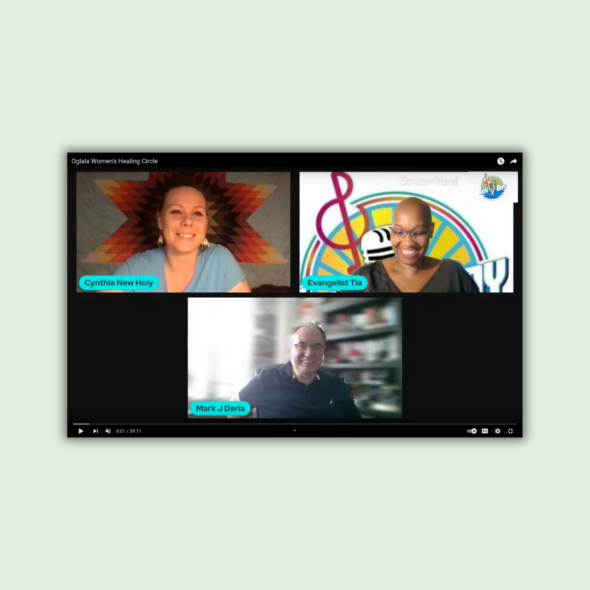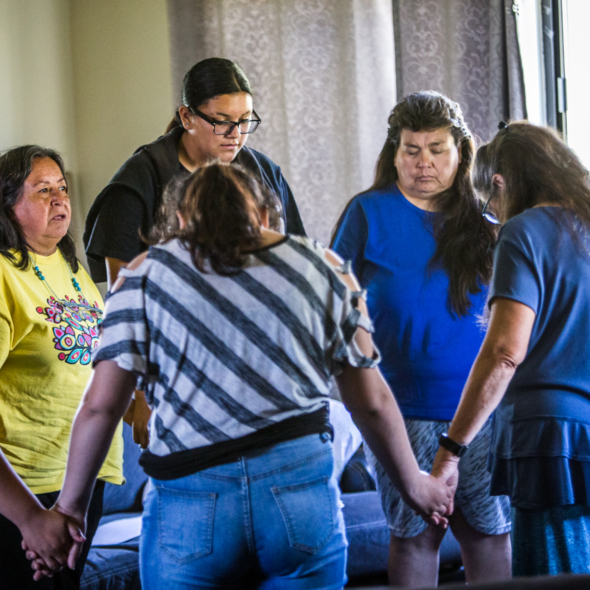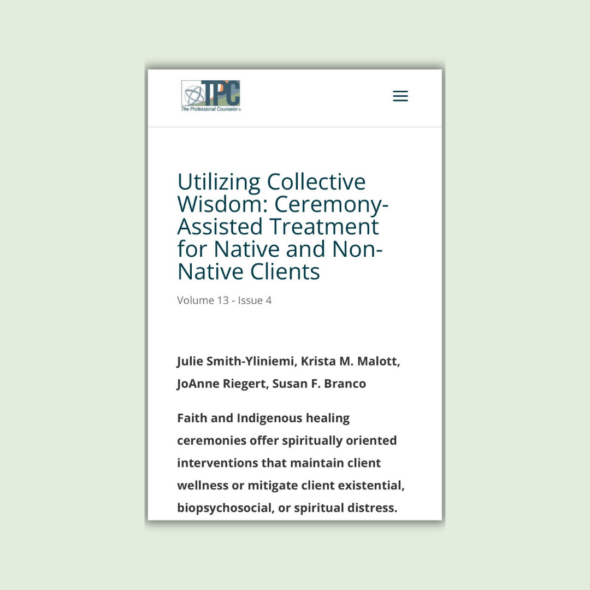Indigenous communities around the world have experienced centuries of trauma due to colonization, war, genocide, substance use, and land-theft. Centuries later, these challenges continue to adversely impact the health and well-being of Indigenous people and communities.
Today, in North America, Indigenous people experience PTSD at twice the rate of the general population, and suicide is the second leading cause of death among 10-34 year-olds who identify as Native. Youth substance and alcohol use is also highly prevalent. Despite these challenges, Indigenous communities demonstrate remarkable resilience and continue the transformational work of rematriation—bringing home what has been taken and lost along the way.
How do we work with Indigenous communities?
Our approach with Indigenous communities is comprehensive, inclusive, and collaborative. We honor Indigenous healing traditions, and support the integration of mind-body medicine into larger community efforts, always under the guidance of Indigenous elders and factoring in the lived experiences of Indigenous community members. We also only bring our model to communities that have invited us. The origins of mind-body medicine can be traced back to numerous Indigenous traditions, and modern medical and sociological research is beginning to affirm what has been known and practiced by these communities for thousands of years. Through these practices, we serve as a bridge between modern science and the healing wisdom of Indigenous cultures to bring about inclusive, communal healing from trauma and chronic stress.
Our engagement with Indigenous communities
Since 2008, we have built organic, healing relationships over 30 tribal communities spread across the Great Plains, the Midwest, the Southwest, Alaska, and Central America. Over 800 Indigenous people—including community leaders, medical professionals, and school administrators—have completed training in our model of self-care and mutual support and integrated it into their communities.
In 2010, Lakota Elder Basil Brave Heart invited us to bring our model of self-care and mutual support to the Pine Ridge Indian Reservation. In our initial engagement, we offered free self-care workshops and Mind-Body Skills Groups to community leaders and health professionals from hospitals, schools, detention centers, and health boards. Through this outreach effort, we fostered long-lasting and meaningful relationships with members of the Oglala Lakota Nation, as well as with funders who would go on to support several cycles of training.
After accepting an invitation to present at the Calling Upon the Warrior Spirit to Heal Historical Trauma Conference in Sacacton, AZ in 2016, our Faculty forged meaningful connections with tribal leaders and Elders in communities across the Southwest. We began staging Professional and Advanced Training Programs for members of tribal nations and institutions serving Arizona, New Mexico, and Utah. Today, we continue to train leaders in school districts, healthcare organizations, and service providers across the region.
In Minnesota and the Midwest, we began a partnership with Suzanne Koepplinger at the Minnesota Indian Women’s Resource Center, who invited us to bring hope and healing to trafficked and/or homeless Indigenous youth and women. Our relationships with Indigenous elders also led us to the Native American Community Clinic and the Indigenous People’s Task Force, where we continue to incorporate mind-body medicine into traditional healing ceremonies.
We continue to forge new partnerships with Indigenous communities across North, Central, and South America. In collaboration with the Aleutian Pribilof Islands Association, we’ve supported a growing network of mind-body medicine trained individuals and organizations across Alaska. Numerous professionals representing and/or serving Indigenous populations in Central and South America have also completed our training and are integrating mind-body medicine into individualized and group-based care offerings.


